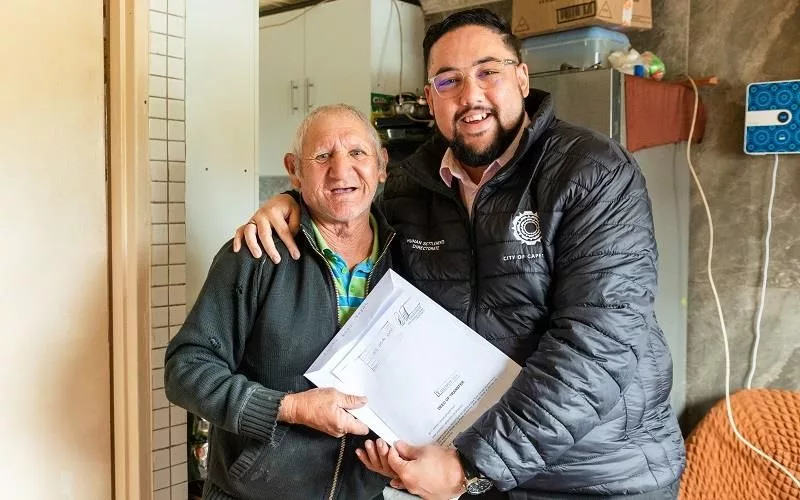Cape Town is taking action to address the need for affordable rental housing by revising the Municipal Planning By-law to attract micro- and small-scale developers to invest in areas where housing is urgently needed. The proposed changes aim to establish and manage these developments, leading to higher quality, safer housing units that are legally connected to essential services. By introducing spatial policies and strategies, the city plans to construct safer, better quality homes in informal settlements and backyards, aligning with Objective 8 of the City’s Integrated Development Plan.
How is Cape Town addressing the need for affordable rental housing?
The city of Cape Town has put forth a revised Municipal Planning By-law aiming to attract micro- and small-scale developers to invest in affordable rental apartments in areas where the requirement is most urgent. The proposed changes intend to establish and manage these developments, leading to higher quality, safer housing units that are legally connected to essential services. The revised Residential Zoning clauses have undergone changes to facilitate low-intensity mixed-use development on residential lands and limited home employment.
Encouraging Investment in Affordable Housing
The city of Cape Town is taking significant measures to address the pressing need for affordable rental housing. The city has put forth a revised Municipal Planning By-law (MPBL) which consists of multiple amendments and new provisions aiming to attract micro- and small-scale developers to invest in affordable rental apartments. This focus is primarily on those residential areas of the city where the requirement is most urgent. This strategy serves two purposes: it not only supports the growing construction industry but also tackles the critical housing challenge in the city.
Alderman Eddie Andrews, the city’s Deputy Mayor and Mayoral Committee Member for Spatial Planning and Environment, is a strong supporter of these alterations. He identifies the private sector as a better solution to the housing issue and appreciates the micro- and small-scale developers who are already addressing this need. He stated, “Our MPBL needs to be in sync with the evolving built environment and unique social scenario in Cape Town,” emphasizing the motive behind the proposed changes.
Identifying Key Areas for Development
The zones selected for the additional use right consist of areas where government-supported housing schemes are commonly found and where the household income averages between low to mid-range. Notably, these regions include areas like Bellville, Beacon Valley, Belhar, Bishop Lavis, and 190 others that have witnessed fast urbanization in the past decade. This rapid urban growth includes the construction of formal backyarder homes, a significant contributor to a flourishing township economy propelled by residents’ resourcefulness, creativity, and investment.
The suggested changes intend to officially establish and manage these developments, ensuring their compliance with National Building Regulations. This would lead to the creation of higher quality, safer housing units that are legally connected to essential services such as water, sanitation, and electricity. As per Alderman Andrews, this would convert property assets into productive use, creating crucial income for property owners in these zones.
Stimulating Housing Development
To boost housing development, the revised Residential Zoning clauses have undergone changes to facilitate limited home employment, more housing units, and low-intensity mixed-use development on residential lands. An additional use right is proposed that would allow the construction of an affordable rental apartment on a property where only a single residential unit has been developed.
However, certain conditions accompany this additional use right. For instance, on a single property, the number of affordable rental apartments cannot exceed eight units plus a house, or a floor area of 160m². If there is no house on the land, the maximum number of units can only be twelve, or a floor area of 240m². The height of the affordable rental unit or apartment cannot exceed 8 meters or two storeys.
Alderman Andrews is optimistic that this proposed additional use right will stimulate investment in the affordable rental sector, mainly in lower-income areas where the demand for housing surpasses the supply. The city plans to leverage the private sector’s ability to meet this demand faster than the government by providing incentives for development in these regions.
Implementing Spatial Policies and Strategies
The proposed MPBL amendments also aim to introduce spatial policies and strategies that the City Council has adopted since its last major revision in 2019. This includes refurbishing the City’s mandate to facilitate and encourage social and economic development. This paves the way for a program to construct safer, better quality homes in informal settlements and backyards, aligning with Objective 8 of the City’s Integrated Development Plan.
The proposed MPBL alterations are now open to public feedback, the city is inviting all residents and interested parties to share their views on this issue. The revised MPBL, maps showcasing the proposed 194 areas, and associated documents are available for review on the City’s website. The deadline for comments submission is 23rd September 2024.
As Cape Town initiates actions to tackle housing affordability, the entire city stands to gain from the outcome. If successful, this initiative could serve as a model for other cities worldwide facing similar challenges. Ultimately, by encouraging the construction of more affordable rental apartments, Cape Town aims to establish a more inclusive housing market, offering lower-income households and individuals a broader range of affordable housing options across the city.
What is the motive behind Cape Town’s proposed changes to the Municipal Planning By-law?
The proposed changes in the Municipal Planning By-law aim to attract micro- and small-scale developers to invest in affordable rental apartments in areas where housing is urgently needed. The city plans to establish and manage these developments, leading to higher quality, safer housing units that are legally connected to essential services.
What areas are selected for the proposed additional use right in the Residential Zoning clauses?
The additional use right is proposed in areas where government-supported housing schemes are commonly found, and where household income averages between low to mid-range. These regions include areas like Bellville, Beacon Valley, Belhar, Bishop Lavis, and 190 others that have witnessed fast urbanization in the past decade.
How many affordable rental units can be constructed on a single property, as per the proposed changes?
On a single property, the number of affordable rental apartments cannot exceed eight units plus a house or a floor area of 160m². If there is no house on the land, the maximum number of units can only be twelve, or a floor area of 240m². The height of the affordable rental unit or apartment cannot exceed 8 meters or two storeys.
What is Alderman Eddie Andrews’s opinion on the proposed changes?
Alderman Eddie Andrews, the city’s Deputy Mayor and Mayoral Committee Member for Spatial Planning and Environment, supports the proposed changes. He identifies the private sector as a better solution to the housing issue and appreciates the micro- and small-scale developers who are already addressing this need.
What is the purpose of introducing spatial policies and strategies in the proposed changes?
The proposed changes include introducing spatial policies and strategies to construct safer, better quality homes in informal settlements and backyards, aligning with Objective 8 of the City’s Integrated Development Plan. This would result in a program that facilitates and encourages social and economic development, paving the way for a more inclusive housing market.
How can interested parties provide feedback on the proposed changes to the Municipal Planning By-law?
The proposed MPBL alterations are open to public feedback, and the city is inviting all residents and interested parties to share their views on the issue. The revised MPBL, maps showcasing the proposed 194 areas, and associated documents are available for review on the City’s website. The deadline for comments submission is 23rd September 2024.











